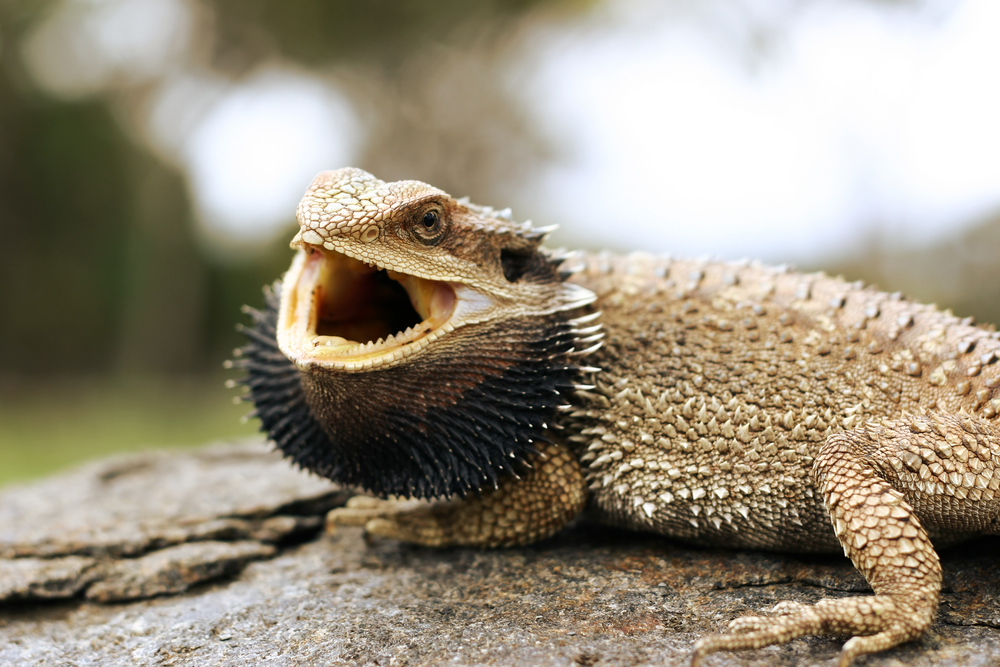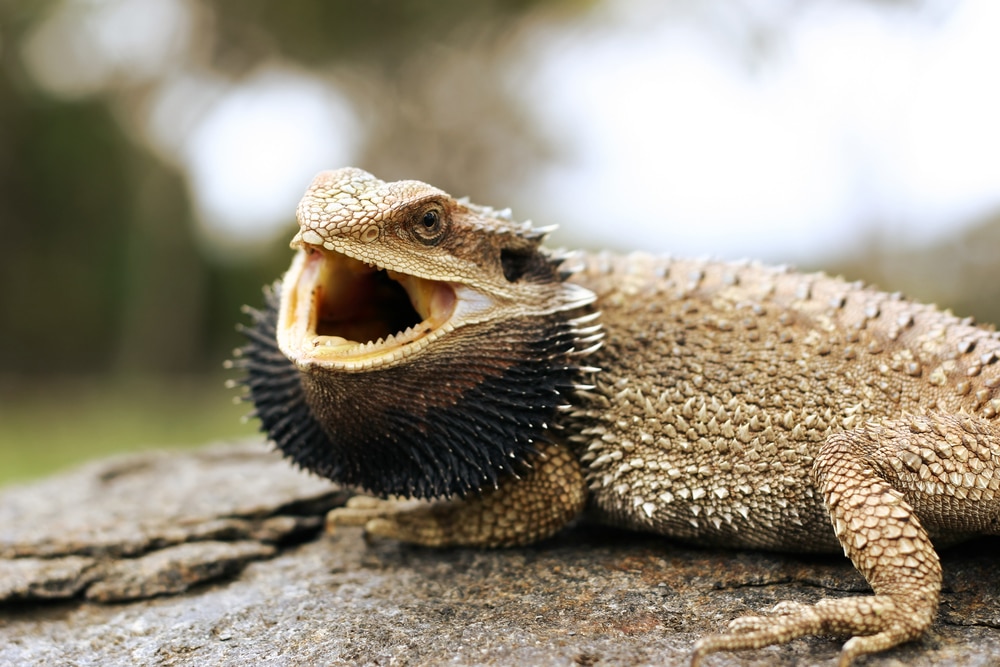Why do bearded dragons bask with their mouth open?
Q: I own three bearded dragons. One of my male bearded dragons sits under his basking lamp with his mouth wide open. None of my other bearded dragons do this and I am concerned. My friend told me that it is normal and it is how bearded dragons regulate their heat but I read somewhere that it can mean they have a respiratory illness. He has been doing it for a while but is still very active and seems normal. Any help would be appreciated. Thanks.
A: The good news is that this is a normal behavior for bearded dragons. It seems that many owners don’t realize how warm these lizards should really be maintained, so they don’t see this behavior. The key to keeping bearded dragons happy is to have a basking spotlight that allows them to raise their body temperature to 95 to 110 degrees Fahrenheit. When a bearded dragon reaches its thermal maximum, it will often sit with its mouth open. This behavior, called gaping, shows that the lizard is at its optimal temperature for basking. This gaping will allow a bearded dragon to dissipate extra body heat. Since lizards don’t sweat, this is an effective way for them to regulate their body temperature. It is important that your bearded dragon habitat have a thermal gradient, so that your lizards can move to a cooler location, if they so desire, once they have reached their optimum body temperatures.
Open-mouth breathing is usually a sign of respiratory disease in other types of herps, and is an especially dangerous sign in snakes, however it can be normal in some lizards, including bearded dragons.
The good news is that you are keeping your bearded dragons at the correct temperature gradient, apparently, and you have nothing to worry about.

shutterstock/cre8tive Images
Open mouth basking is a normal behavior in bearded dragons.
Margaret A. Wissman, DVM, DABVP has been an avian/exotic/herp animal veterinarian since 1981. She is a regular contributor to REPTILES magazine. Looking for a local her vet? Click here>>



